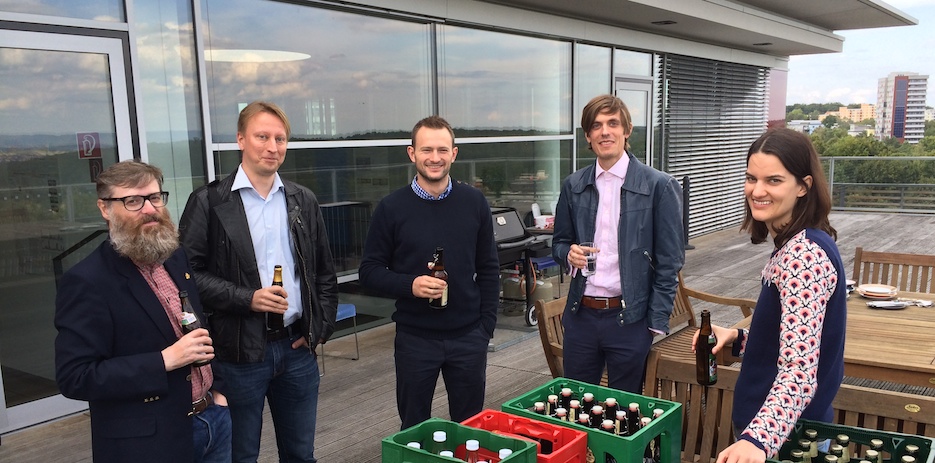Roundtable on Probabilistic Numerics
| When? | August 21, 2014 - August 22, 2014 |
| Where? | Tübingen, Germany |
| Organizers | Philipp Hennig, Michael Osborne |
The roundtable provided an informal setting for everyone interested in the development of probabilistic numerical methods. The roundtable was neither a workshop nor a conference. There are no proceedings, and attendees did not have to submit a paper to attend. Apart from a small number of talks, the schedule focused strongly on small-group discussions on specific aspects. Some of the questions discussed in 2014 included
-
What is a well-defined notion of “uncertainty” for a probabilistic numerical method? What are the limits of error estimation?
-
What are good data-structures for the communication between numerical methods in a pipeline? How can numerical methods convey requirements for precision among each other?
-
To which degree should numerical methods be inspired by existing numerical frameworks, and where should we deviate from established concepts? Is there a place for ab initio probabilistic solutions to existing numerical problems?
-
In building probabilistic methods, when are richer models worth their associated computational cost? Can we develop families of numerical methods with cost/accuracy trade-offs tunable to the requirements of the problem at hand?
-
Can we support new probabilistic numerical methods with the theory required for them to find broad acceptance?
Forming a community
Over the past years, a number of researchers stemming largely from the areas of machine learning and statistics have attempted to build such probabilistic numerical methods. A first meeting point for this group was the 2013 NIPS Workshop on Probabilistic Numerics. Probabilistic Numerics is still a fledgling community, in fact many of us do not know each other well, and we do not always know of each other’s work. The Probabilistic Numerics Roundtable hopes to alleviate this problem.
